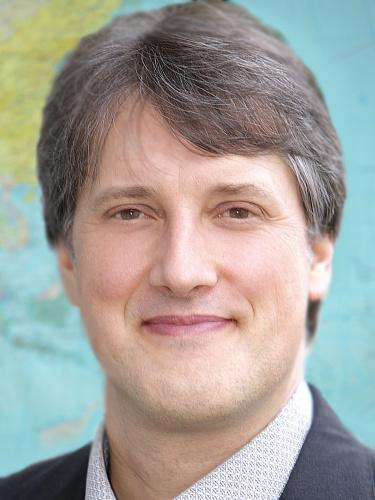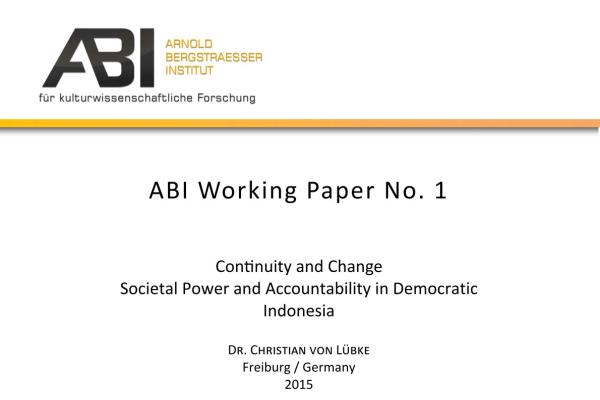
Research Gate Profil / Google Scholar Profil
Christian von Lübke is a political economist with particular interest in democratic governance and socio-economic development in Southeast Asia. While most of his professional and empirical work has focused on Indonesia and the Philippines, research interests increasingly extend to other parts of the region, including Thailand, Malaysia, and other parts of East Asia. His academic and professional work places great emphasis on interdisciplinarity and mixed methods.
Before joining the Arnold-Bergstraesser Institute, Dr. von Lübke was a postdoctoral research fellow at Stanford University (2008-2011) and Waseda University (2007). He worked as technical advisor for the World Bank and GIZ in various parts of rural Indonesia (2001-2006). In 2007, he joined an international team at the Institute of Development Studies (IDS) analyzing effects of public-private action on investment and growth.
Dr. von Lübke’s research has been published in the Journal of Development Studies, Pacific Affairs, Asian Economic Journal, European Journal of East Asian Studies, Contemporary Southeast Asian Affairs, and Bulletin of Indonesian Economic Studies. He regularly contributes political analyses on Southeast Asia’s contemporary developments to Oxford Analytica.
Preparation,realization, documentation of the Freiburg Winter School on “Democratic Governance – Integrating Theory and Practice”, which was launched for 35 participants from ten countries (GIZ, BMZ, KfW, Consultancies) and cross-fertilized academic and applied perspectives on participation, inclusion, and accountability.
Global assessment of FES regional work (Africa, Asia, MENA, Latin America)
Worldwide analysis of the foundation’s socio-political measures – on the basis of in-depth
Key Publications
"All the gold for nothing? Impacts of mining on rural livelihoodsin Northern Burkina Faso" World Development 119 , 2019, 23–39 (together with B. Pokorny, S.D. Dayamba, H. Dickow)
' Modular Comparisons: Grounding and Gauging Southeast Asian Governance.' Pacific Affairs, 2014, 87 (3): 509-538.
‘Striking the Right Balance: Economic Concentration and Local Government Performance in Indonesia and the Philippines’, European Journal of East Asian Studies, 2012, 11(1):17-44.
‘A Tale of Two Cities: The Political Economy of Local Investment Climates in Indonesia’,Journal of Development Studies, 2012, 18(7):799-816 (together with N. McCulloch and A. Patunru).
'The Politics of Reform: Political Scandals, Elite Resistance, and Presidential Leadership in Indonesia’, Journal of Current Southeast Asian Affairs, 2011, 29 (1): 79-94.
'The Political Economy of Local Governance: Findings from an Indonesian Field Study', Bulletin of Indonesian Economic Studies, 2009, 45(2):201-30.

